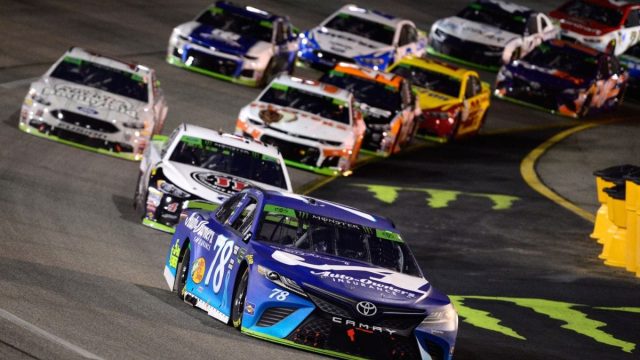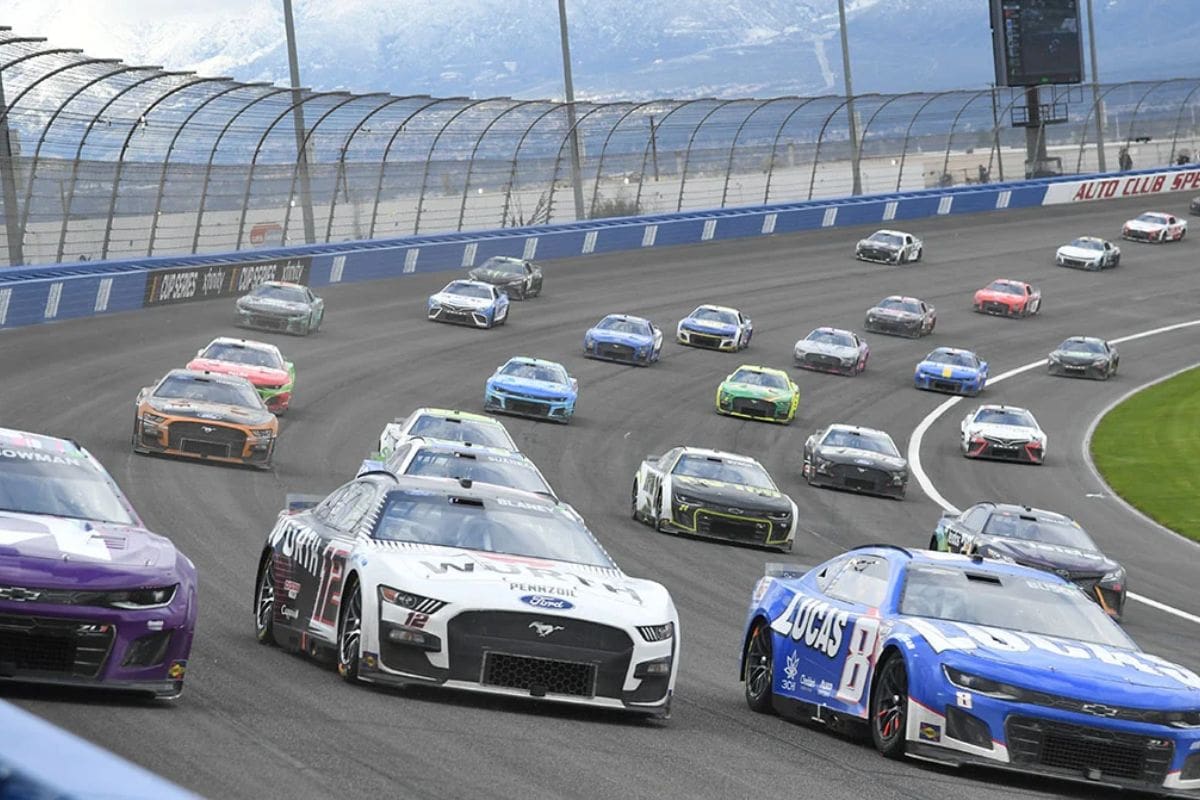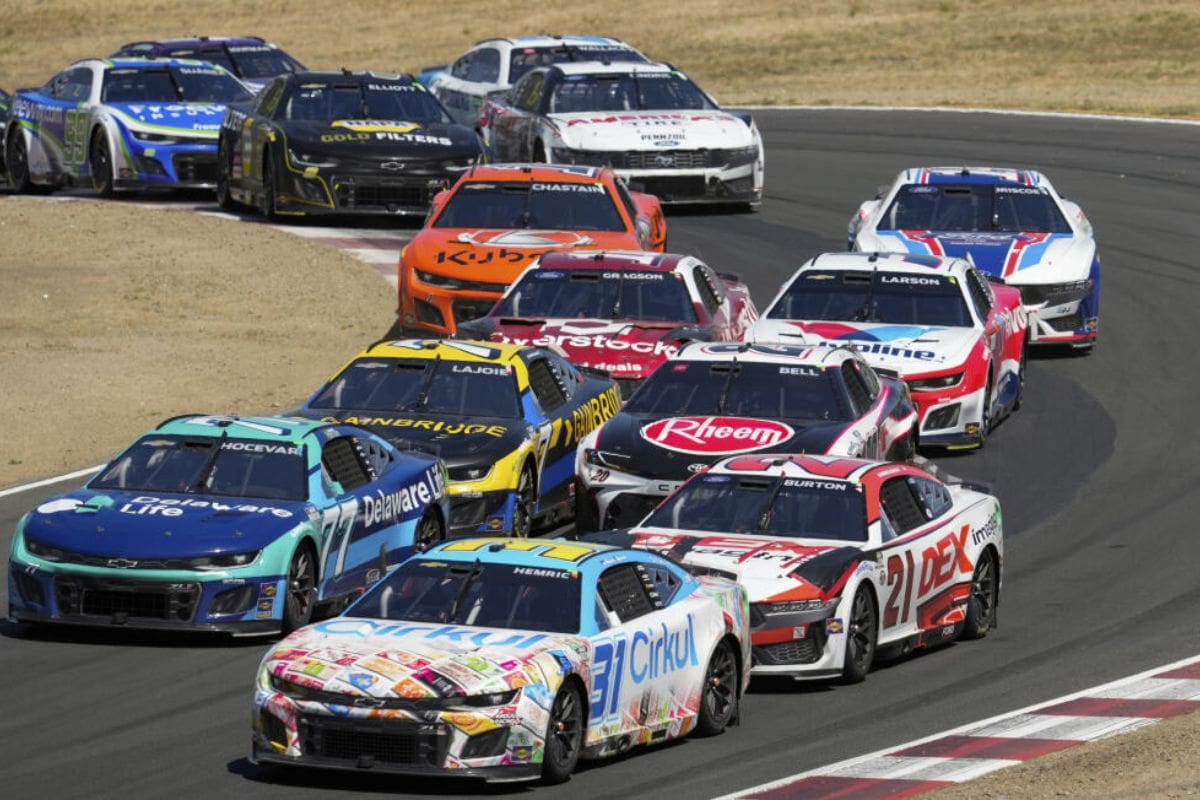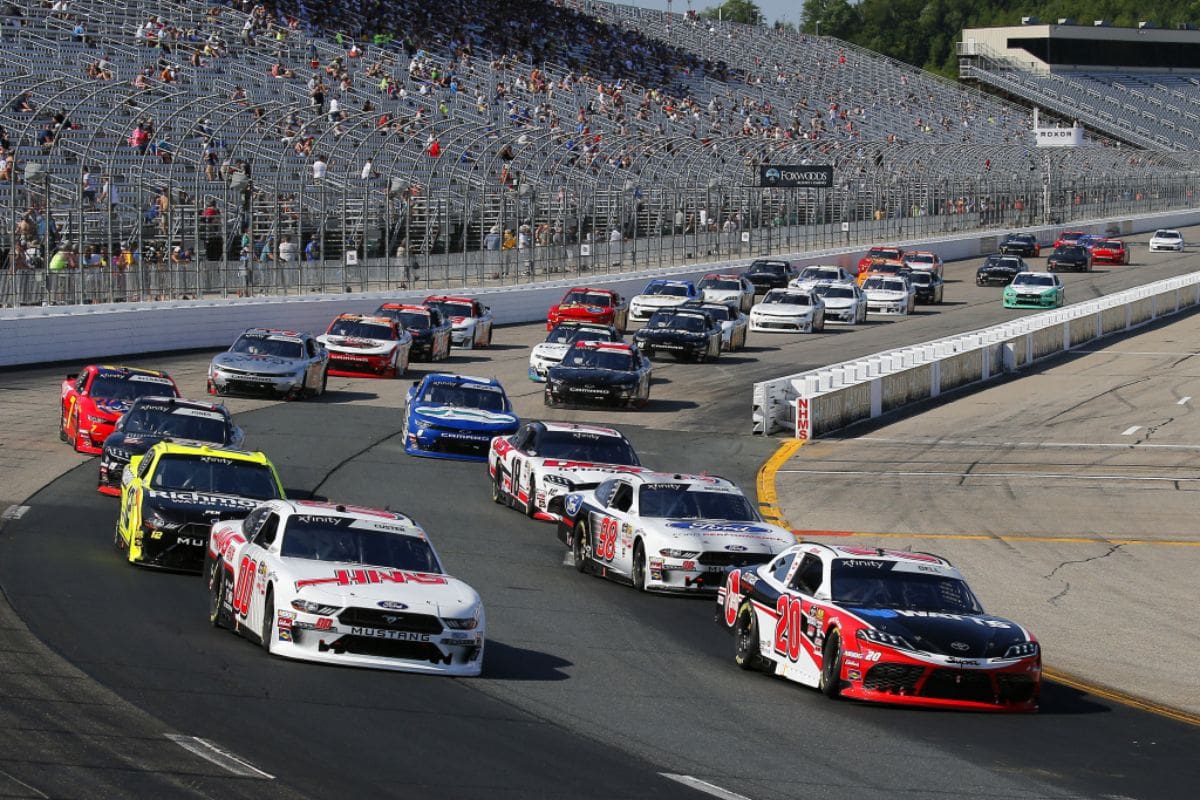NASCAR Drivers Criticize Playoff Format: As NASCAR approaches the Atlanta race, a growing chorus of drivers is openly questioning the efficacy of the current playoff format, raising noteworthy concerns about its impact on the sport’s integrity and excitement. While some remain supportive, many argue that the elimination process fosters undue stress and compromises competitive fairness. This discord highlights a crucial moment in the league’s evolution, prompting a deeper inquiry into how the balance between competition and entertainment can be achieved. The implications of these criticisms could reshape the future of NASCAR, as stakeholders grapple with the underlying issues at play.
Key Highlights
- Eight drivers have voiced their dissatisfaction with the current NASCAR playoff format, citing fairness concerns.
- Some drivers believe the playoff system prioritizes entertainment over competitive integrity, leading to frustration.
- The elimination rounds create high pressure, but many drivers feel it diminishes the value of consistent performance.
- Supporters of the format argue it adds excitement, but critics highlight the risks of unpredictable outcomes.
- The ongoing debate reflects a divide among drivers, with differing opinions on the playoff’s effectiveness and excitement level.
2024 NASCAR Cup Series Playoffs Overview
The NASCAR Cup Series playoffs are designed to heighten the stakes and intensify competition as the regular season reaches its climax. Commencing after the completion of the 2024 regular season at Darlington, the playoffs feature a 16-driver field vying for the prestigious Cup Series title. This format is constructed to create an exhilarating atmosphere, as each driver must not only complete all regular-season races but also secure victory in at least one event to qualify for the playoffs.
The playoff structure incorporates a meritocratic element, in instances where fewer than 16 different race winners emerge, winless drivers with the highest accumulated playoff points will fill the remaining spots. This nuance is critical, as it guarantees that the competition remains fierce and that drivers who consistently perform well throughout the season are not sidelined due to the unpredictability of race outcomes.
The playoff format is segmented into several rounds, further amplifying the tension and urgency of each race. As drivers progress through these rounds, the strain mounts, necessitating not only skill and strategy but also mental fortitude.
The elimination process culminates in the final race, where the top contenders battle for the championship, summarizing the essence of competitive racing.
This playoff framework is not merely a statistical exercise; it fundamentally shapes the dynamics of the racing season, influencing driver tactics, team strategies, and ultimately, the pursuit of excellence in one of motorsports’ most prestigious arenas.
Drivers’ Opinions on the Current Playoff Format
Opinions among NASCAR drivers regarding the current playoff format reveal a considerable divide, reflecting the complexities and varying perspectives inherent in competitive racing. A recent survey conducted by Fox Sports’ Bob Pockrass found that while some drivers appreciate the excitement generated by the format, others express notable dissatisfaction. Specifically, eight drivers voiced their disagreement, seven offered support, and one was indifferent.
The feedback highlights a spectrum of sentiments, with some drivers openly critical of the system. One driver bluntly stated, “It sucks,” emphasizing a sense of frustration that resonates with others who seek a more balanced and fair approach. Contrastingly, another driver acknowledged the positive impact of the format on their own performance, while simultaneously questioning its appeal from a fan’s perspective, stating, “It was just fun to watch.”
“Yes. It helped me this year. But when I watched it as a fan, did I like it? It was just fun to watch.” – a driver said
This division highlights the ongoing debate surrounding the format’s efficacy in promoting competitive integrity versus entertainment value. As NASCAR continues to evolve, the drivers’ voices will remain vital in shaping the future of the playoff system, ensuring that it serves both the sport and its passionate fanbase effectively.
“It is what it is. The current playoff format is the only one I’ve ever run on the Cup side. … I have a suggestion for a hybrid format that I think is pretty solid but I don’t make those decisions.” – a driver said
Structure of the NASCAR Playoffs
NASCAR’s playoff structure unfolds over a rigorous 10-race format designed to heighten competition and excitement. This intricate framework is divided into four distinct rounds, each progressively intensifying the stakes as the season draws to a close. The initial three rounds—Round of 16, Round of 12, and Round of 8—each consist of three races, wherein drivers vie for position and points, aiming to secure their advancement to subsequent stages.
A notable feature of this format is the elimination system, which sees four drivers removed from competition after each round. This mechanism guarantees that only the most consistent and high-performing drivers continue through the playoffs, thereby amplifying the competitive spirit. Each round concludes in a recalibration of standings based on accumulated playoff points, further emphasizing the importance of performance throughout the season.
The final round, known as the Championship 4, represents the peak of this structure. It is a singular, race that ultimately determines the season champion, summarizing the climax of the drivers’ efforts.
The format allows drivers to automatically advance by securing a victory in any race within a round, thereby offering a tactical element to the competition. However, the elimination of the four lowest-scoring drivers after each round creates a relentless strain, guaranteeing that every race carries considerable implications for drivers’ championship aspirations.
NASCAR Reintroduces Bowman Gray for Clash: Ben Kennedy Discusses the Historic Move
NASCAR’s 2025 schedule is shaping up to be one of the most intriguing in recent memory, with a significant addition to the calendar: the return of Bowman Gray Stadium as the venue for the preseason Clash. This move has generated considerable excitement within the racing community, prompting a recent discussion between NASCAR Executive Vice President and Chief Venue and Racing Innovations Officer Ben Kennedy and veteran driver Kevin Harvick.
In an episode of the Happy Hour Podcast, Harvick engaged Kennedy in a conversation about the significance of bringing the short track back into the spotlight. “Now we’re going to a place that’s very well-educated on the history of our sport, the things that happen. So, just explain the whole Bowman Gray piece of the puzzle from all of those aspects,” Harvick inquired, seeking insights into the strategic rationale behind this decision.
It’s about the history. It’s about the fans.
NASCAR’s @BenKennedy33 talks with @KevinHarvick about the decision to return to Bowman Gray Stadium for The Clash.
Check out the full conversation here» https://t.co/yrElmfULQU pic.twitter.com/nZGs6xlTvR
— HarvickHappyHour (@HarvickHappyPod) September 5, 2024
Kennedy’s response highlighted the unique allure of Bowman Gray Stadium. “People talk about what makes Bowman Gray so special, and it is the on-track product, the infrastructure, the history that you feel inside the stadium. It’s an opportunity for us to give back to the fans, an opportunity to speak to our history and our roots, but then also an opportunity to put the spotlight on weekly short-track racing,” Kennedy explained.
The move to include Bowman Gray Stadium, known for its rich heritage and passionate fan base, reflects NASCAR’s commitment to honoring its roots while also promoting the essence of short-track racing. The Clash at Bowman Gray is expected to offer a thrilling start to the NASCAR season, blending historical significance with an exciting racing format that pays homage to the sport’s origins.
News in Brief: NASCAR Drivers Criticize Playoff Format
The criticisms voiced by NASCAR drivers regarding the current playoff format highlight considerable concerns regarding fairness and the excitement of competition. The elimination process, while designed to heighten stakes, may inadvertently compromise the integrity of racing dynamics. As discussions continue, a reevaluation of the playoff structure may be necessary to balance competitive integrity with the entertainment value that fans demand. Addressing these concerns could lead to a more engaging and equitable racing experience for both drivers and audiences similarly.
ALSO READ: NASCAR Drivers Who Don’t Deserve a Playoff Spot: Ft. Martin Truex Jr.



